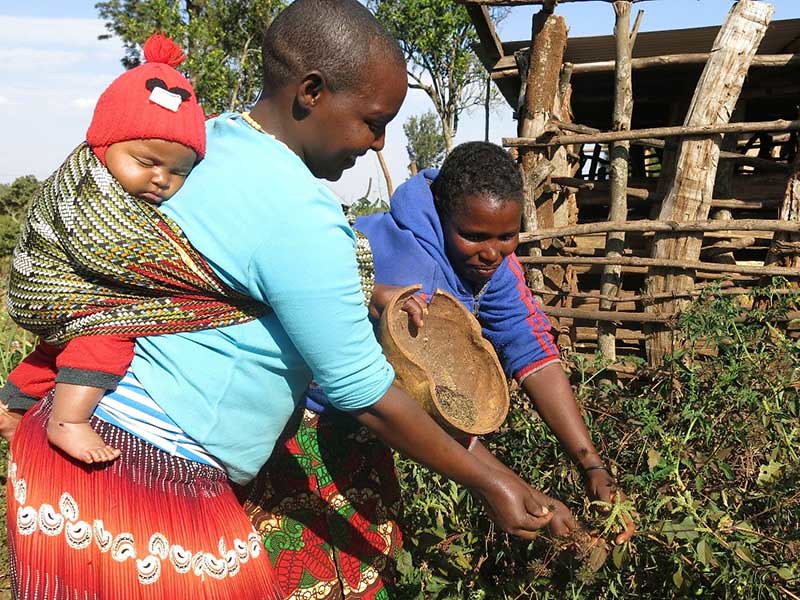From trainee to model farmer
Farmer Pius Wilbard sharpened his vegetable production skills and increased his income thanks to Africa RISING Farmer Field School activities in Tanzania’s Karatu District.
Eager to learn, Pius Wilbard a member of the Uvumilivu Farmer Group in Karatu District, Arusha Region, Tanzania, participated in a Training of Trainers workshop on Integrated Pest Management (IPM) in March 2019. The workshop was facilitated by the World Vegetable Center with financial support from the Africa RISING and Kilimo Endelevu partner projects.
Before the training, Pius did not know how to grow crops well, specifically vegetables. He was not aware of good agronomic practices and their importance for improved production, nutrition and income generation.

Based on his prior experience, farming was a risky and costly venture. He had to purchase expensive seed, pesticides, and fertilizers. ‘I spent a lot of effort on maize production, and I was able to harvest a maximum of three bags from 0.25 acre per year,’ he said. ‘But I was not able to gain any profit out of that at all, not even to return the cost of production.’ Wilbard also applied a lot of fertilizers and pesticides to produce vegetables.
After the training workshop and by following demo trials through Farmer Field Schools, he put his new production skills to the test and was able to produce enough vegetables to feed his wife and four children, with the surplus to sell for income generation.
‘I have trained more than 50 people in demo plots out in their fields and work together with my family on the farm,’ Wilbard said. ‘Today I never struggle to find money to purchase household items. My wife uses money gained from the sale of vegetables to buy what we need, including school supplies for our children.
‘For example, we gained TZS 60,000 (USD26) from vegetable production, which we used to buy two pigs and six chickens,’ he continued. ‘With these improved local breeds, we were able to start a new micro-enterprise.’

Wilbard and his family also grow improved African traditional vegetables with a seed received from the project; these traditional crops are growing well in their area. ‘We apply animal manure on our field, and prepare our own natural pesticides, something we did not do before the project intervention,’ he said. ‘We have come to realize that natural pesticides such as those made from hot pepper, garlic and onion do not harm our health or the environment.’
Most of the time, he harvests vegetable seeds from his own field and advises people who buy his vegetables to save the seed and produce their own vegetables to feed their families and to sell. His dream is to strengthen community collective action to meet market demand for quality vegetables in Karatu District since he cannot supply it alone. ‘If many people are knowledgeable about vegetable production and consumption, this would promote community behaviour change towards healthy eating,’ he said. ‘We need to produce enough vegetables to include in our diets.’
This story was originally published on WorldVeg FRESH newsletter.




